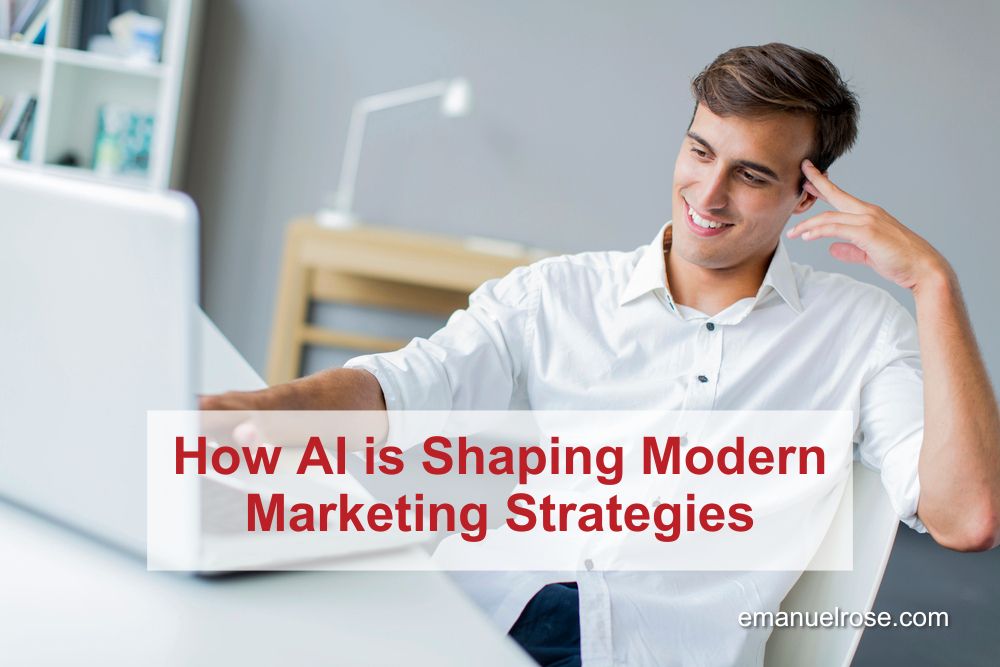The dynamic world of marketing is continuously evolving, thanks to advancements in technology. One of the most significant game-changers in recent years has been the incorporation of Artificial Intelligence (AI) into marketing practices. Leveraging AI can revolutionize how we approach marketing campaigns, manage customer interactions, and even streamline our daily operations. Let’s explore how AI is currently utilized and its potential future impact on marketing.
The Application of AI in Marketing
Artificial intelligence has started to change how marketing teams operate by optimizing various aspects of their workflows. From generating content to enhancing customer experience, AI offers a multitude of tools and techniques to make marketing efforts more efficient and effective.
One of the primary uses of AI in marketing today is in content creation. AI can be employed to generate copy for social media posts, blog articles, and even advertisements. Marketers can prompt AI tools with specific tones and brand personalities to streamline the content creation process. Additionally, AI can help with spell-checking, ensuring consistency with brand guidelines, and editing images.
Another significant application of AI is in the area of data analysis. Marketing campaigns generate a plethora of data that needs to be sorted, analyzed, and interpreted. AI tools can quickly sift through large volumes of data, identify patterns, and provide actionable insights. This capability saves marketers a substantial amount of time that would otherwise be spent on manual data analysis.
Enhancing Customer Experience
Customer experience is one of the crucial elements of a successful marketing strategy. AI plays a vital role in enhancing this experience by providing personalized content and interactions. For instance, AI-powered chatbots can offer real-time customer service, answer queries, and provide recommendations based on user behavior and preferences.
AI can also help in segmenting audiences more accurately. By analyzing customer data, AI tools can identify distinct customer segments and tailor marketing messages to each group. This ensures that the right message reaches the right audience, thereby increasing the effectiveness of marketing campaigns.
Overcoming Challenges

Despite its numerous advantages, the integration of AI in marketing is not without challenges. One of the main hurdles is the lack of a comprehensive 360-degree approach to applying AI across the entire customer journey. While there are tools available to optimize specific steps, a full-fledged AI-powered marketing strategy is still in development.
Moreover, the irregularity in AI performance can be a stumbling block. For example, the same AI tool might produce different results for similar prompts, leading to inconsistent outputs. This inconsistency can be frustrating for marketers who rely on AI for generating consistent, high-quality content.
Another challenge is ensuring that AI-generated content aligns with the brand’s voice and guidelines. Marketers need to be precise in their prompts to avoid vague or off-brand outputs. This often requires a lot of testing and refining to get the desired results.
The Promising Horizon of AI in Marketing
The potential for AI in marketing looks incredibly bright, with continuous advancements paving the way for enhanced capabilities. One area with significant promise is Generative Engine Optimization (GEO). Unlike traditional SEO, GEO leverages AI to generate content optimized for search engines, providing a more dynamic and effective approach to content creation.

Small marketing teams and startups particularly stand to benefit from AI integration. For these teams, AI can level the playing field by automating routine tasks, analyzing market data, and generating content swiftly. This enables them to concentrate on more strategic and creative aspects of marketing, driving growth and innovation.
Additionally, as AI tools become more sophisticated, we can expect a more seamless integration into marketing workflows. For instance, AI could eventually handle complex tasks such as strategic planning, market research, and customer relationship management more autonomously. This would free up marketers to focus on building deeper connections with their audience and developing innovative marketing strategies.
Practical Tips for Using AI in Marketing
For marketers who are just starting to explore AI, it’s essential to have a clear strategy and set realistic expectations. Here are a few practical tips for getting started:
- Start Small: Begin by integrating AI into simple tasks such as content creation and data analysis. Gradually expand its use as you become more comfortable with the technology.
- Clear Prompts: Ensure that your prompts to AI tools are precise and clear. Avoid using vague or creative language that could confuse the AI and lead to inconsistent outputs.
- Use Reference Materials: Provide AI tools with reference documents that outline your brand voice and guidelines. This helps in generating content that is aligned with your brand.
- Iterate and Improve: AI is not perfect and may require multiple iterations to get the desired output. Be prepared to refine your prompts and inputs to optimize the results.
- Stay Updated: AI technology is evolving rapidly. Stay updated with the latest advancements and continually test new tools and techniques to stay ahead of the curve.
The incorporation of AI in marketing offers exciting opportunities to optimize workflows, enhance customer experiences, and drive business growth. While there are challenges to overcome, the potential benefits far outweigh the initial hurdles. By starting small, being precise in our prompts, and continuously testing and refining AI tools, we can harness the full potential of AI to revolutionize our marketing strategies.


